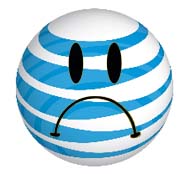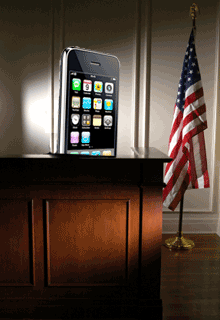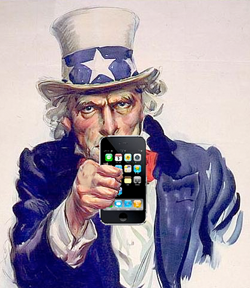 We are now less than a day away from the start of the long-awaited rollout of MMS on the iPhone. AT&T is planning to roll out the functionality in bunches starting at 10am ET, with a text message being sent to iPhone customers when the account is enabled for MMS, according to an anonymous source quoted by Broadband Reports.
We are now less than a day away from the start of the long-awaited rollout of MMS on the iPhone. AT&T is planning to roll out the functionality in bunches starting at 10am ET, with a text message being sent to iPhone customers when the account is enabled for MMS, according to an anonymous source quoted by Broadband Reports.
The question now is, given AT&T’s history, will this rollout go off without a hitch? It’s questionable. During tests, the carrier’s MMS servers reportedly failed for those invited to participate. Additionally, in the test groups, “record traffic” was reportedly seen during peak hours. If the situation is as reported, it seems to suggest that Friday could be another one of those days for the carrier’s millions of iPhone users.
If traffic is 40 percent higher than normal as some are predicting on Friday,the grief that iPhone users may experience could bleed to non-iPhone users, further damaging the company’s already weak standing for service reliability with a good chunk of its customers.
Certainly, it’s going to be interesting to watch how AT&T’s network does in the first days of the rollout. Since users will have to connect to iTunes to sync the new “carrier file” which enables the functionality within the iPhone’s software, it’s fairly likely we won’t see any potential problems crop up until later in the day or on Saturday.
Sorry AT&T, but I’m not holding my breath here that you guys can do this. Too many times since I’ve switched to you folks in October for the iPhone 3G you’ve let me down. I never thought I would actually want to go back to T-Mobile and EDGE data (yep, that’s all they have here), but at least they weren’t dropping calls.


 It’s not full-fledged multitasking, but Loopt will be the first third-party app to send out information even when you’re not actively using it.
It’s not full-fledged multitasking, but Loopt will be the first third-party app to send out information even when you’re not actively using it. On November 6th of last year at the Web 2.0 conference, AT&T Mobility President and CEO Ralph De La Vega told the audience that the company would soon let AT&T customers tether their iPhones to laptops as a wireless modem. I
On November 6th of last year at the Web 2.0 conference, AT&T Mobility President and CEO Ralph De La Vega told the audience that the company would soon let AT&T customers tether their iPhones to laptops as a wireless modem. I  From its
From its  TiVo’s quarterly call
TiVo’s quarterly call Apple
Apple Verizon was the first major carrier to do it
Verizon was the first major carrier to do it  A class action filed in a Louisiana district court is alleging that Apple and AT&T are improperly advertising MMS (multimedia messaging service) for the iPhone without having provided it,
A class action filed in a Louisiana district court is alleging that Apple and AT&T are improperly advertising MMS (multimedia messaging service) for the iPhone without having provided it,  People keep saying that there’s no court of last resort when Apple rejects an iPhone application. Heck, nobody can even demand that Apple explain its actions. But the one guy who can order even Steve Jobs around is Uncle Sam. And the FCC is now
People keep saying that there’s no court of last resort when Apple rejects an iPhone application. Heck, nobody can even demand that Apple explain its actions. But the one guy who can order even Steve Jobs around is Uncle Sam. And the FCC is now